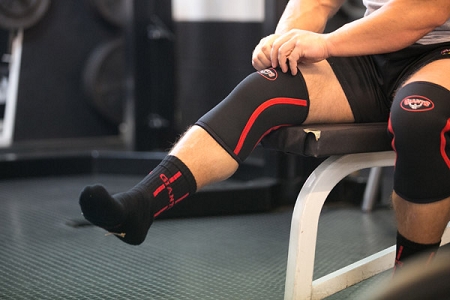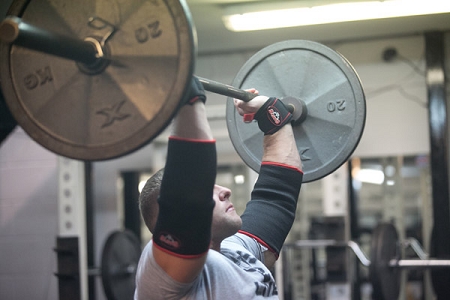Gear – What is it?
In fitness-related sports, Gear is anything that helps you get the job done. It is most commonly referred to as gear, equipment, or supports. Typical examples would be weightlifting belts, knee or elbow sleeves, compression pants (warm pants), and wrist wraps. Lifting weights puts a lot of strain on your joints. These tools are used to compress and keep joints warm to avoid injury and help you lift more weight.
What Gear do I need?
With so many options and social media athletes constantly trying to sell you on their sponsored brand, it’s hard to know what will actually provide value to you in your sport. There’s no single answer that fits everyone, but we can give you a couple considerations to start as well as some personal recommendations:
What is your sport?
For most athletes, their sport involves some kind of compound lift. Crossfit, Strongman, Olympic Weightlifting, and Powerlifting all benefit from gear but do not have identical needs. If you sport involves lots of repetitive, jarring movement – maybe start with some knee sleeves. Powerlifters and weightlifters benefit greatly from lifting belts that work by giving you something to brace against, while protecting your spine and increasing intra-abdominal pressure.
How old are you?
A 16 year old’s knees are going to be very different (probably less creaky) than a 40 year olds. You have to know your own body and what kind of strain you’ve put on it over the years. Play tennis in college? Maybe look at pair of elbow sleeves.
How far in are you?
When starting out, you don’t want to teach yourself bad habits or develop imbalanced muscles. For example, being too dependent on a lifting belt can lead to weak abdominal muscles that can get injured. It’s better to begin with as little gear as possible and let your body figure out its weak points. As you continue, find to your body’s aches and pressure points. If you squat a lot but sit at a desk all day, your knees are probably going to feel it. If you have a bad wrist that’s affecting your bench or overhead press, check out some wrist wraps.
What you need to know:
Good gear can be the difference between hitting a new PR or being out of the gym for months with a nagging injury. If you’re nervous about being too dependent on it, don’t use it until you’re over 90% of your max effort lifts. Buy high quality gear – even if it seems expensive, you’ll spend a lot more when it falls apart or on a trip to the doctor. Listen to your body and you’ll learn what works for you.
Visit our SHOP for our full lineup of lifting gear and accessories.


